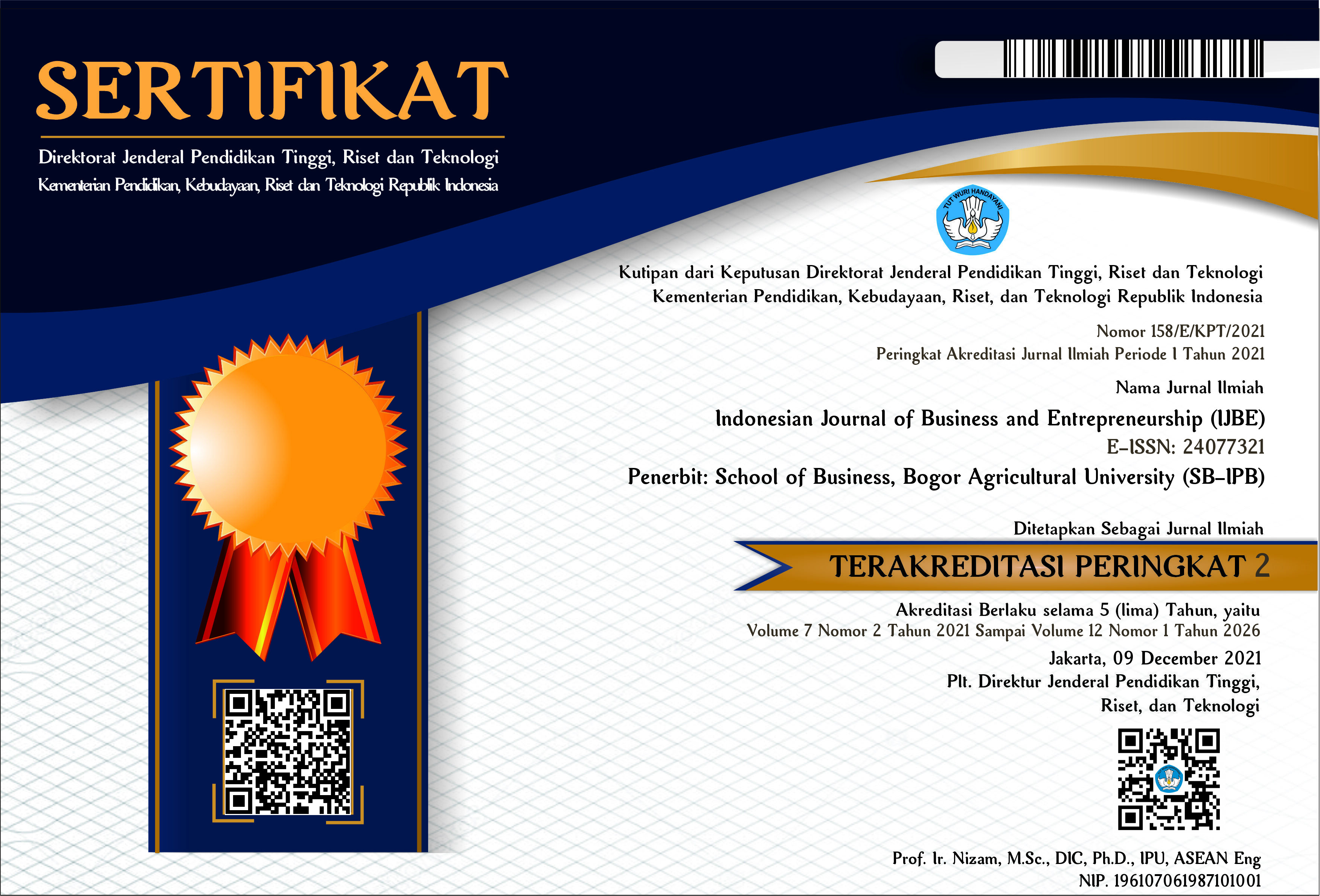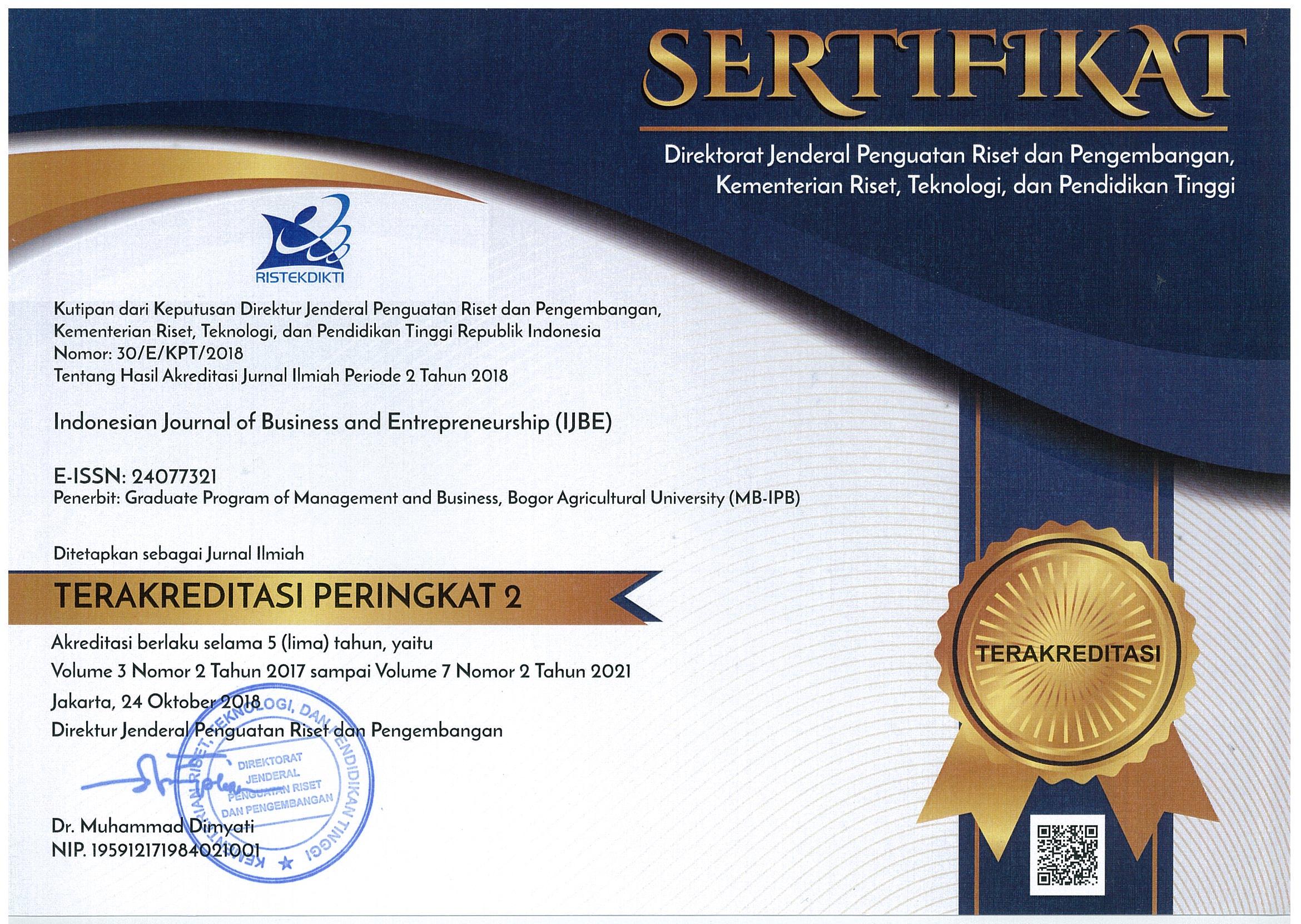A Comparison of Perceptions and Adapted Behaviors Between Employees and Entrepreneurs Against Pandemic Covid-19 Pandemic
Abstract
New normal is a change in behavior to continue carrying out normal activities and implementing health protocols to prevent Covid-19 transmission. After the implementation of the new normal, it automatically affects the routine activities carried out by the community, especially those activities which are limited by the government when New Normal is implemented. This study analyzes perceptions and adaptive behavior between employees and entrepreneurs when implementing New Normal during the Covid-19 pandemic. The approach used is a modified Theory of Planned Behavior (TPB). A total of 427 respondents who is an employee have answered the online questionnaire containing 61 questions. In this research, after the respondents' characteristics were classified, the descriptive analysis carried out with a standard deviation approach, mean value and an independent sample T-test were done using the SPSS 25 software. Insignificance was found in indicators of vulnerability and understanding of Covid-19. Significant differences between employees and entrepreneurs were found in the attitude indicators of Covid-19, which are easy to spread, the number of cases died, the influence of friends, the ability to have internet quotas, past work behavior, past handwashing behavior, The perceived severity is related to medical costs if exposed to Covid-19 and reduced income due to the severity of Covid-19. Perceptions between employees and entrepreneurs have significant differences on several indicators. These differences arise because of their environment, both the work environment and the environment around where they live.
Keywords: Covid-19, adapted behavior, new normal, the theory of planned behavior, employee, entrepreneur







